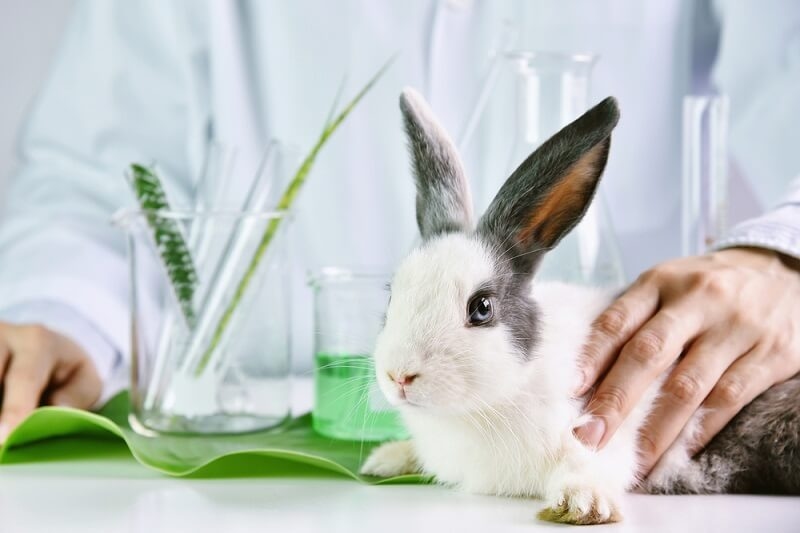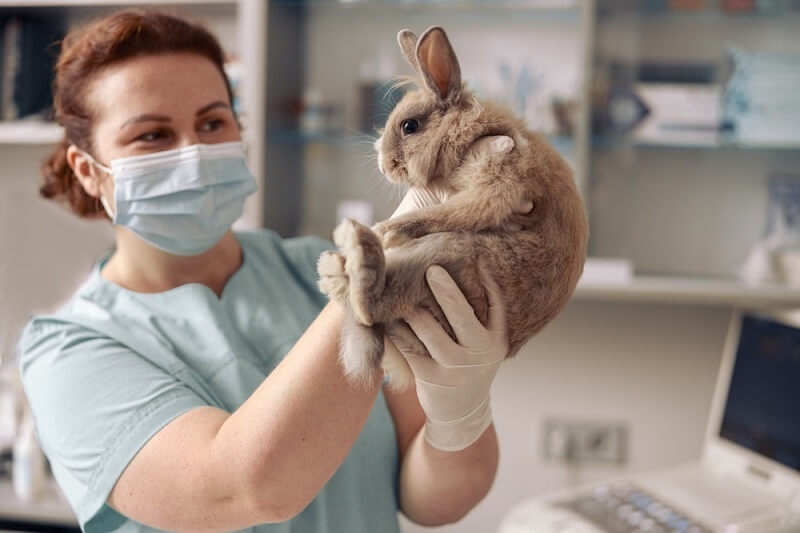
Rabbits are touchy pets vulnerable to breathing ailments, and statistics show that rabbit snuffles is an essential ailment for any owner. Recognizing rabbit breathing infection signs and symptoms, sneezing signs and symptoms early can save you from severe complications. This manual provides targeted recommendations on rabbit snuffle remedy alternatives, a rabbit vet care manual, and critical rabbit disease prevention tips. By exploring signs and symptoms, causes, and at-home care options, you may provide the necessary support for your rabbit to heal quickly and stay healthy in the long term.
Rabbit snuffles is a common bacterial respiratory infection, usually caused by Pasteurella multocida. It affects the nasal passages, the sinuses, and, more importantly, the lungs, causing pain and extreme headache if left untreated. The most common signs include:
Knowing the basics of rabbit snuffles' illness can help the owner recognize the early signs and seek immediate care to improve healing outcomes.
Early detection is crucial. Rabbit breathing contamination signs can also encompass:
Spotting the signs and symptoms allows for timely intervention with suitable treatment options for rabbit snuffles. Ignoring moderate symptoms can result in continual infections, which may be harder to deal with.
Sneezing is a hallmark of rabbit sneezing signs and symptoms, but it’s essential to distinguish occasional sneezes from infection:
Monitoring rabbit sneezing signs allows us to decide whether we need professional care and implement domestic manipulation techniques.
The essential motive of rabbit snuffles disorder is bacterial contamination; however, several factors contribute:
Recognizing these causes helps use powerful rabbit sickness prevention pointers and protect one-of-a-kind rabbits in multi-dog households.

Professional assessment is essential for correct analysis. A guide to rabbit veterinary care will include:
Utilizing a rabbit veterinary care guide will ensure that the appropriate treatment options for rabbit snuffles are applied correctly.
Treatment methods may vary depending on the severity of the condition:
When treating rabbits with snuffles, following the veterinarian's instructions and selecting appropriate options for treating rabbit snuffles is the key to recovery and avoiding a relapse.
Correct home care will assist your rabbit in the healing process:
By following these steps, you can be confident that your rabbit is responding appropriately to the treatment for rabbit snuffles.
It is essential to keep preventive measures. The key steps you can take to keep your rabbits healthy are:
Using daily rabbit illness prevention steps reduces your chances of chronic breathing issues.
Nutrition is key to recovery and prevention:
The right vitamins improve options for treatment of rabbit snuffles and promote overall health.
The environment has a significant impact on rehabilitation and prophylaxis:
Environmental management guidelines will supplement rabbit illness preventative tips and assist with the long-term outcomes of breathing disorders.
Rabbits can also experience either acute or chronic snuffles:
Identifying an acute versus a chronic case will allow options for proper treatment of rabbit snuffles and adequate vet care to maximize the rabbit's recovery status..
When you have multiple rabbits, illness management is vital:
This guide includes all rabbit illnesses, prevention recommendations, and a consistent home layout.
Stress is a huge factor in recovery:
Reducing stress helps maintain the effectiveness of rabbit snuffles treatment options and reduces risk.
If your rabbit has any of the following:
Early treatment according to a rabbit vet care guide will improve the odds of recovery and save you headaches from rabbit snuffles illness.
Rabbit snuffles disease is not an unusual respiratory infection in rabbits that may cause sneezing, nasal discharge, and breathing problems. Early detection and constant care are vital to prevent headaches. Home care includes preserving easy surroundings, tracking signs and symptoms closely, and supporting your rabbit’s immune system through proper nutrients and hydration. Extended health monitoring allows trap relapses to be detected early, ensuring your puppy remains healthy and comfortable, even as they receive well-timed veterinary care as needed.
Even after recovery, long-term health monitoring is recommended:
Continuing rabbit health care enables long-term rabbit health and helps avoid recurring complications from rabbit snuffles disease.
Understanding rabbit snuffles sickness empowers owners to offer nicely timed care and effective home care. By tracking rabbit respiratory infection signs and sneezing symptoms, following a rabbit vet care guide, implementing rabbit snuffles remedy options, and applying proactive rabbit illness prevention pointers, you may protect your rabbit’s health and ensure a happy, comfortable existence. Proper care and vigilance are key to stopping chronic issues and supporting complete recuperation.
This content was created by AI